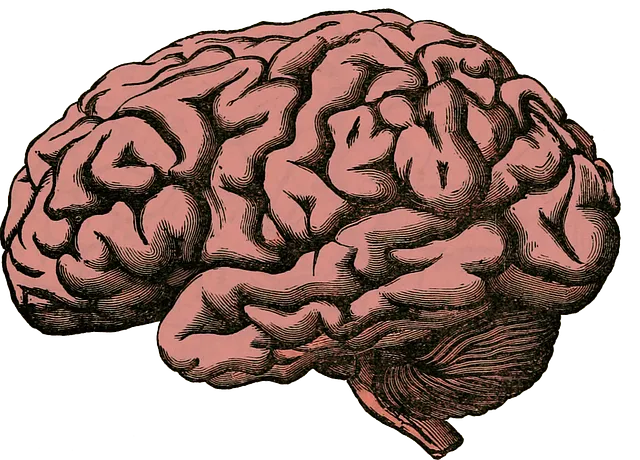The Kaiser Permanente mental health center in Westminster, California, is a leading provider of crisis intervention services, using teams comprising psychologists, social workers, and peer specialists. These teams de-escalate crises, promote self-care, and advocate for better Mental Health Policy Analysis to enhance community resources. Their innovative training program combines technical knowledge with interpersonal skills development through interactive simulations, mindfulness exercises, and confidence-building techniques, fostering a supportive work environment and improving patient outcomes. The center also prioritizes crisis response preparedness with regular simulation debriefings, Community Outreach Programs, tailored mental health education, and feedback mechanisms for continuous improvement.
In today’s healthcare landscape, crisis intervention teams (CITs) are an essential resource for managing acute mental health crises. The article delves into the critical role of CITs, highlighting successful initiatives like the program at Kaiser Permanente Mental Health Center in Westminster. We explore essential components of comprehensive training programs, emphasizing skills development and evidence-based strategies. By implementing effective crisis response approaches, healthcare settings can enhance patient safety and outcomes, ensuring a more prepared and resilient workforce.
- Understanding Crisis Intervention Teams: A Necessity in Modern Healthcare
- Kaiser Permanente Mental Health Center Westminster: Setting the Stage for Specialized Training
- Essential Components of a Comprehensive Crisis Intervention Team Training Program
- Implementing and Evaluating Effective Crisis Response Strategies within Healthcare Settings
Understanding Crisis Intervention Teams: A Necessity in Modern Healthcare

In today’s fast-paced and often stressful world, the role of Crisis Intervention Teams (CITs) has become increasingly crucial in modern healthcare settings, especially at mental health centers like the Kaiser Permanente Westminster facility. These specialized teams are designed to provide immediate support and guidance during moments of crisis, ensuring that individuals receive the care they need promptly and effectively. CITs typically consist of trained professionals from various backgrounds, including psychologists, social workers, and peer support specialists, who work collaboratively to de-escalate situations and offer sustainable solutions.
The necessity for such teams arises from the growing recognition of mental health as a paramount concern. By fostering self-care routine development and compassion cultivation practices, CITs empower individuals to navigate challenging circumstances with resilience. Furthermore, their presence is instrumental in facilitating Mental Health Policy Analysis and Advocacy, ensuring that services and resources are accessible and tailored to meet the diverse needs of the community.
Kaiser Permanente Mental Health Center Westminster: Setting the Stage for Specialized Training

The Kaiser Permanente Mental Health Center Westminster stands as a beacon of specialized care in the heart of California. This renowned facility has recognized the pressing need for comprehensive crisis intervention training, especially given the growing conversation around mental illness stigma reduction efforts. By offering tailored programs, they aim to equip individuals with the skills to navigate and support those facing mental health challenges effectively.
One of their innovative approaches focuses on self-care routine development for better mental health, emphasizing the importance of personal well-being in crisis management. Additionally, these training sessions delve into stress management techniques, empowering participants to handle high-pressure situations while fostering a supportive environment. Through such initiatives, the center contributes to building a resilient community capable of responding to mental health crises with compassion and competence.
Essential Components of a Comprehensive Crisis Intervention Team Training Program

A comprehensive crisis intervention team training program is designed to equip healthcare professionals at the Kaiser Permanente mental health center Westminster with the necessary skills and knowledge to handle critical situations effectively. Such programs should incorporate a multi-faceted approach, addressing both technical aspects of crisis management and interpersonal skills essential for de-escalation. The core components include interactive simulations, where trainees practice responding to various crisis scenarios, fostering an environment conducive to learning from experience.
Additionally, training should emphasize the importance of empathy, active listening, and positive thinking as powerful tools in building rapport with individuals in distress. Incorporating mindfulness exercises and confidence-boosting techniques based on mind over matter principles can enhance the team’s resilience and ability to remain calm under pressure. These strategies not only contribute to improved patient outcomes but also create a supportive work environment where professionals feel empowered to make a real difference.
Implementing and Evaluating Effective Crisis Response Strategies within Healthcare Settings

Implementing effective crisis response strategies within healthcare settings is paramount for institutions like the Kaiser Permanente mental health center in Westminster. These strategies not only ensure the safety and well-being of patients but also foster a supportive environment conducive to recovery. A well-structured crisis intervention team training program is essential, equipping staff with the knowledge and skills to handle crises promptly and effectively. Regular simulations and debriefings can enhance these teams’ capabilities, enabling them to navigate complex situations with confidence.
The Kaiser Permanente mental health center Westminster has pioneered various initiatives, including the Community Outreach Program Implementation, which targets at-risk populations in the community. By integrating Mental Health Education Programs Design tailored for different demographics, the center promotes Emotional Well-being Promotion Techniques that prevent crises and encourage proactive mental healthcare management. Evaluating these programs through feedback mechanisms and data analysis ensures continuous improvement, aligning with the center’s commitment to excellence in patient care and crisis management.
Crisis intervention team (CIT) training is a vital component of modern healthcare, as evidenced by programs like those offered at Kaiser Permanente Mental Health Center Westminster. By focusing on specialized training and comprehensive curriculum, these initiatives equip healthcare professionals with the skills to effectively navigate and de-escalate crises. Through practical strategies and ongoing evaluation, such programs ensure that CIT members are prepared to deliver compassionate and efficient care during critical situations. This proactive approach not only benefits patients but also fosters a safer, more resilient healthcare environment.






